This will be exactly as the title suggests. I’ve just returned from a two week road trip and I read a dozen books during that time. But since I didn’t take a computer, none of them got reviewed. Below you’ll find a recap. The reviews are on the shorter side, the unfortunate side effect of trying to remember the details of twelve books. But here we go all the same.
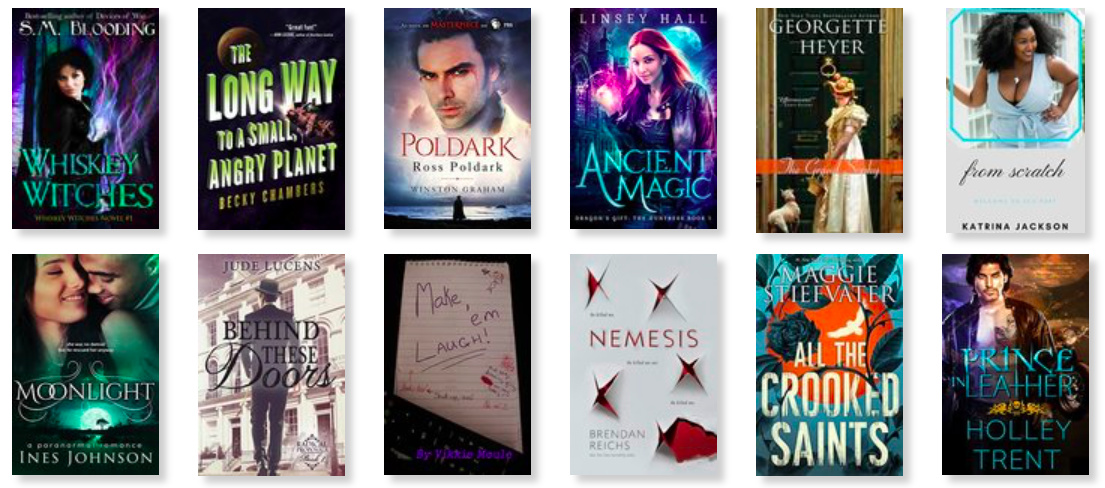
Whiskey Witches
So, this was really bad. The editing gets progressively worse as the book goes along. At 90% characters are still being introduced and several previously introduced characters simply appear and disappear throughout the book. But mostly it’s totally unfocused and unanchored. It leaps around erratically.
I feel like Blooding wanted to write a TV show. Because maybe MAYBE some of it would have worked with visual aides. For example, at one point the narrator is talking about Jessie and I’m like, “Who is this person?” If it was television, the scene would have focused on the car (Jessie), making it obvious that this was Jessie. But in text…nope, totally didn’t work and there are just dozens of situations like that.
Further, the whole plot doesn’t hang together. The idea that demons are actually not evil, but trying to get humans to be self-responsible is an interesting one. Unfortunately, the book harps on and on about this, but all the demons are actually chaos inducing, evil entities, totally contradicting what we’re supposed to believe.
I admit I’ve read worse. But finishing this was simply an act of will. I wanted badly to DNF it. And that’s without addressing the fact that it’s actually a serial, so don’t expect any kind of actual ending.
The Long Way to a Small, Angry Planet
Another reviewer referred to this as a book about a road trip in spaceand that’s the perfect description. (Wish I’d thought of it.) Like a road trip, the goal is to get from one point to another, with stops along the way and the occasional event. That’s this book all over.
And I’ll grant that most of those stops and events weren’t exciting. There wasn’t actually much tension anywhere the book. But I liked it all the same. Because I don’t think tension was the point. There is a huge amount of diversity presented in The Long Way to a Small, Angry Planet, with humans being the bumbling newcomers. Seeing the cast consider and accept their differences, cultural and physiological, was lovely. There’s a nice little f/f romance in the background, several philosophical quandaries navigated and it all wraps up nicely.
All in all, regardless of the reasons, I just liked it. But I can totally see it not being for everyone. Boredom could be a very real possibility for those looking for action.
Ross Poldark
I’ve never actually seen the show. Wouldn’t have even known it was a show if it didn’t say so on the cover. So, I went in with no expectations and I was neither disappointed nor exalted. I liked the writing and Poldark was an interesting character, but I was also a tad bored with all the drama. I rather expect this might be one of those series that gets better as it goes on, once you know everyone. It feels like it would be. But as it was, I found this one an ok read, nothing more or less.
Ancient Magic
This wasn’t bad, per se. It was just simple. The love interests meet, there is instant attraction, they go on a mission, 1,2, 3 everything is accomplished and, ta-da, it’s done. As an example (and this is a tad spoilerish, but it’s not an important scene), the two need some information from some people on an island. They go there, show up as the island is being attacked, save the day, get their answers (because they’re trustworthy, since they saved the island) and leave again. Now, how convenient is that? The whole book is like that. Too one dimensional to be much more than entertaining. It is entertaining. I don’t regret reading it. But I’ll have forgotten it by the end of the week. In fact, I initially left it off this list because I’d already forgotten I read it.
The Grand Sophy
It seems like people have been telling me to read Heyer forever and <I>The Grand Sophy</I> was finally my first. To my own utter surprise I truly enjoyed it. As others have mentioned, there’s some stereotypical racism which is hard to excuse, even by saying it was written in the 1950s and is set in Regency times. But beyond that I enjoyed Sophy’s machinations. Of course, nothing would work out as perfectly in real life, but I’ll suspend my disbelief lang enough to believe she really kept all those strings untangled and created the best for everyone involved. And you do see the end coming a mile away. But it’s still lovely. I am side-eyeing the first cousin romance though. Just saying.
From Scratch
I’m sure I read the blurb when I picked this book up, but I didn’t before I decided to read it (months later). So, I didn’t go in expecting a ménage à trois. But I was quite happy with it in the end. (Except that I read it on a road trip, in the car with my in-laws, just hoping my mother-in-law wouldn’t read over my shoulder at any point.)
What I did remember about the recommendations I’d heard for this book is that the editing wasn’t quite up to snuff, even if the story is a good one. And honestly, that’s exactly what I’d say too. The editing isn’t horrible, but I noticed a couple hiccups, but they were quite easy to overlook for the experience of the story.
Yes, it’s all a little too instant and easy, Mary undergoes some sort of magic personality transformation when she moved to Seaport apparently, and somehow two bi-sexual men (attracted to one another) are supposed to have miraculously never quite noticed in their 20 years of acquaintance. So, maybe not super realistic, but sexy and ultra sweet (without be saccharine), which I’ll take.
Moonlight
Well, this wasn’t bad. But it wasn’t anything to write home about either. Mechanically the writing is fine and I actually liked both of the characters. (Plus, I really appreciated seeing black characters lead a PNR. It’s too rare.) But everything happened a little too fast and there was just a little too much back and forwards, will I-won’t I, yes/no, etc. for me. And it could do with a little more editing to catch things like, “She sat down on a rock and balled.”
On a side note, I didn’t realize that this was book two in a series when I read it. I had no problem picking it up and diving right in. It stands alone just fine.
Behind These Doors
This was really quite lovely. I wasn’t actually surprised to love it, as I’d read the prequel Gutter Roses and truly enjoyed it. It was fun to see Ben and Cath pop up on occasion, but they’re not the main characters here. That would be Lucien and Aubrey, two men from different worlds. Two men who couldn’t be sweeter. They were adorable.
I do think that this is one of those books that I love the idea of, finish with a deep sigh and heartfelt “awww,” so long as I don’t think too deeply about the logistics. Because, while a lot of the book is exploring polyamory in Edwardian times and it’s beyond endearing to hear about Lucien and his lovers, I finished it still feeling a bit like, “So, how’s that going to work then?” A little suspension of disbelief is in order. (Though I’m sure there have been people who made it work in reality and it might feel just as shakey if written down. Truth can be stranger than fiction—though maybe less directly dissected. We hardly invented multiple lovers in modern times.)
I’d forgotten (from when I read Gutter Roses) that Ben was bi-racial. But I was happy to be reminded and see Lucens slip other diversity into the book. Lucens has found a place on my to-read-again list, that’s for sure.
Make ’em Laugh
I actually read this by accident, having opened it thinking it was another book. By the time I realized my mistake, I decided to just keep on going. In the end, it was a providential mistake. I’ll be honest, with that cover it’s unlikely I’d have given it much of a chance. But it was a sweet little romance. There’s not a lot of tension. It’s just two men learning to be together, but I enjoyed it.
There were several instance in which the writing got a little odd. Mostly phrases that work in dialogue, where characters can had personal speech characteristics, but not so much in narrative, like “it was gone midnight” or “She leant against the counter.” It could do with a tad more editing in general. All-in-all, however, I wouldn’t dissuade anyone from reading it.
Nemesis
Meh, it was ok. The first half kept me pretty interested, but once the twist was disclosed I pretty much lost interest. I didn’t actually understand what killing a kid over and over again was supposed to accomplish, given the eventual goal, and how exactly this was accomplished was waved away entirely. It’s simply not addressed. But the writing and editing were fine. Others will likely love the book. I found it possibly entertaining.
All the Crooked Saints
I loved this. In the beginning, I wasn’t sure I would. It took me a little while to fall into the flow and pacing of the book. But by the end, I just set the Kindle down and sighed happily. I adored the characters and Stiefvater is the sort of author who can turn a phrase just right.
Prince in Leather
Mechanically the writing in this book is fine. However, I really disliked it. It was full of quotes like this, “She didn’t want to give in to the six-foot-whatever pain in her ass, but ceding bits of her control to him felt so easy. So…natural.” Now, that’s not a generalizable quote. That comes from a sex scene and directly equates having sex with the male lead with accepting their relationship and therefore “ceding control” to him…in general, not just in the bedroom. Then random BDSM tropes were thrown in, but not discussed, such that it was inferred him having such control was normal and natural because all women always apparently want to give up their control to a man. So, there’s no reason to discuss kinks or anything.
Then a random three-some was thrown in (for their first time together) and it’s framed like this: “If he were less kind, he’d make you his plaything,” Thom said. “You may bear the title of wife, but he doesn’t have to treat you like one. He chooses to because he wants you. Do you understand?” Nothing, I repeat, nothing about that is sexy to me. This is the sort of gendered BS that makes me avoid M/F romance for large chunks of time!
I did appreciate the black heroine. You don’t see that often enough. And again, the writing is mechanically fine. But unless you’re particular kink is seeing women subjugated, I wouldn’t recommend this book.
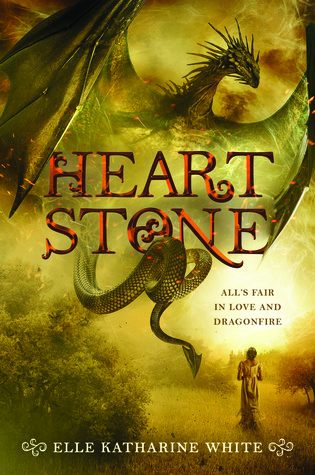
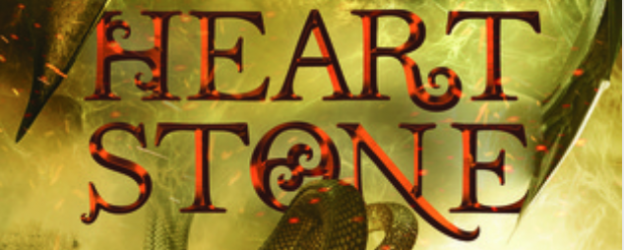

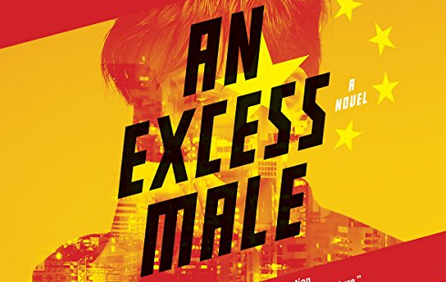
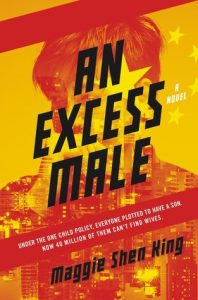 I borrowed a copy of
I borrowed a copy of